Women, Men, Horses, and the Wild, Wild West: An Interview with Deanne Stillman
I met Deanne Stillman in September 2013, and it seemed we had a great deal to discuss. We talked on a breezy, warm day at a Starbucks near the University of Arizona campus in Tucson, covering topics ranging from writing, to violence against women, to militarization—all issues of great interest to both of us. She was delightful company, and for months I’ve been hoping to interview her for TFW, to share her remarkable body of work with our readers. That time has now come. Enjoy!
Bio: Deanne Stillman’s latest book is Desert Reckoning, based on her Rolling Stone article, “Mojave Manhunt.” It won the 2013 Spur Award for Best Western Nonfiction, contemporary; the LA Press Club Award for Best General Nonfiction; was named a “Southwest Book of the Year”; was an Amazon editors’ pick; and was praised in many publications. She also wrote Mustang, an LA Times “Best Book 08,” winner of the California Book Award silver medal for nonfiction, and currently under option for a film starring Wendie Malick. In addition, she’s the author of the cult classic Twentynine Palms, an LA Times “Best Book 01” and re-issued as an e-book in 2013. Hunter Thompson called it “A strange and brilliant story by an important American writer,” and it’s included in college nonfiction courses around the country. In addition, Deanne’s work appears in many anthologies and her plays have won prizes in various festivals. She has also written for the NY Times, LA Times, Slate, Salon, Orion, Tin House, Truthdig (“Letter from the West” column), Huffington Post, The Rumpus, and other publications, as well as for film and television. Currently, she is writing Blood Brothers for Simon and Schuster, and she’s a member of the core faculty at the UC Riverside-Palm Desert Low Residency MFA Creative Writing Program. For more information, visit www.deannestillman.com.
MJC: You’ve talked in other interviews about your upbringing, including your parents’ divorce and your sudden move with your mother and sister from an upper middle-class neighborhood to a working class community. How do you see these experiences shaping / connecting to your interest in women’s lives?
DS: A loss of social, cultural, and economic status takes its toll on anyone who is affected, regardless of gender and other categories, but the toll is especially hard on women and children. Such reversals of fortune or falls from grace are generally regarded as the fault of whomever they happened to, and the unlucky are often shunned in our culture. Women in particular, and especially single women with children, have a very tough time coming back from this kind of experience, although things have loosened up in recent years. When this happened to my family, the term “divorcee” was in widespread use. It was an epithet for “Barbara Stanwyck,” “loose woman,” or “what happened to her?” Suddenly my mother was taken less seriously in the culture. Also, our move introduced me to America’s dirty little secret – class. There were a lot of people from our old life and world, including some relatives, who stopped talking to us because we had moved to the wrong side of the tracks. There were other “divorcees” and their kids there – though not many. The absence of fathers was palpable and we all had our stories. Years later, when I became a writer and met kids in the deserts of California who were living in very dire circumstances, often with single mothers, their stories resonated and one thing that ran through all of them was the question, “Where’s Dad?”
MJC: You’ve written about wild horses, violence against women, military bases, and other slices of life in the U.S. Can you offer some thoughts on how these subjects link together?
DS: First some backstory: When my parents got divorced, my mother’s most immediately marketable skill was horseback riding, as she was a lifelong equestrienne. She got a job right away on the racetrack, as an “exercise boy” – one of the first women in the country to ride professionally on the track. At some point, I realized that I wanted to write about horses some day, to repay a favor they were doing for us, providing us with a living, and years later, when I learned that 34 wild horses had been gunned down outside Reno at Christmas time in 1998, the time had come. Two of the three men accused were Marines and one was stationed at Twentynine Palms, the location and title of my first book, about two girls who had been raped and killed by a Marine after the Gulf War. A lot of things came together for me at that point. I knew that the Corps was sending its most troublesome recruits to the base in Twentynine Palms. And I knew that there was an ongoing siege across the West, involving all sorts of people and forces and history. But the mustang massacre was shocking and to understand it, I realized I had to unearth the story of wild horses in America: how did they come to live outside Reno and what had led us as a people to lay waste to this great icon of freedom?
You see, there actually was an argument in some quarters about whether the massacre was a good or bad thing. I had been exploring and writing about the Mojave for years and I knew that these assaults on “the other” – whether girls, wild animals, or the land itself – are all part of a piece, an ongoing war against ourselves, really; disrespecting the land by way of strip malls and tract housing and all manner of chopping, damming, extracting, and you name it leads to violence in general, but to a great degree, against those who have no voice in our culture. The roots of this are in America’s original sin – our betrayal of Native Americans, which I explored a bit in Mustang. That’s the focus of my next book, about the unlikely friendship between Sitting Bull and Buffalo Bill; I’m calling it Blood Brothers. Driving all of these assaults on the environment and one another is the national mantra, “It’s a free country and I can do what I want,” the thing we all learned in third grade. And it’s a great belief, which we should not take for granted, but there is also a childish aspect. Problems arise when that belief synchs up with personal pathology and people cannot distinguish identity from doing bad things. “The Joshua tree was there and no one would know if I used it for target practice” is not so far from “Coyotes are worthless and if I take one out, I’m doing everyone a favor” or “There was this girl and her parents weren’t home and we had some drinks and, well, some things happened, so sue me…”
MJC: You and I have talked previously about some of the unfortunate ways that issues of women in the military and sexual violence on/near U.S. bases are ongoing. Your book Twentynine Palms explores this. Can you say more about these issues?
DS: Through the prism of a double rape and homicide in Twentynine Palms, California, I explore a range of things. Who is living in the Mojave Desert and how did they come to be there? What led to the military saying, “We do deserts, not mountains” and what effect has this had on the desert itself? How does the military interact with civilians in remote towns such as Twentynine Palms, where it is the main source of income for locals? What is the role of the desert in the lives of the people who live there, either by choice or because they have to? In Twentynine Palms and other military outposts, the Marines (in this case) are the rich guys in town. Like sports, the Corps is a way out of rough circumstances for some people. Girls of little means sometimes marry into the military because that translates into a life of relative comfort – health care, housing, etc. Or they just hang out with Marines for the same reasons. Then of course they just happen to be in the same town and those are the guys they hang out with, for better and for worse. In some cases, this puts them at risk. Marines or soldiers, depending on the town, back from long deployments and often traumatized, are sometimes unable to extract themselves from a war zone or realize that the cultural one that they are in on the homefront is different than the one they were just in abroad. Life on the homefront becomes another battle zone, in one way or another, via deadly battles for power and control. Factor drugs and drinking into the situation and trouble ensues. While I was working on Twentynine Palms, I found out that violence spiked on dollar drink night, when local bars offered specials – on Marine payday as it turned out. The incident I wrote about happened at that time. I think that some bars have done away with this practice since my book came out, but obviously that’s a volatile combination. Another thing that’s very telling is the dirty marching cadences that were in use at the time of the Gulf War. They’ve probably been around forever, but may have gone underground at this point, with more women in the military. Here’s the refrain from one of them: “…I wish all the ladies was bells in the tower/If I was the hunchback, I’d bang em on the hour/Singin’ hey boppa –ree- ba, hey boppa-ro…” (For more about the story that I tell in Twentynine Palms, click here.)
MJC: A related question: your work is very much about place, rooted in landscape. Reading through Mustang, I was struck by passages that are akin to what I might call a feminist engagement with landscape. Can you talk about this in your work?
DS: As I see it, place is a driver of story and character – in life, and in narrative. We are shaped in many ways by place, whether it’s an exterior or interior landscape. Mustang, a narrative account of the wild horse on this continent from prehistory through the present, with a look at the ongoing wars to wipe it out, of course is set against the world of the wild horse, which is the American West, in myth and reality. The wild horse – indigenous to North America – evolved in tandem with this continent, was shaped by it, and completely changed the lives of those whose paths it crossed, from Native Americans to cowboys to all of us, really, representing freedom and escape; before the road trip (and the Mustang, the car which was named after the horse), the wild horse was taking us into the dreamtime – a world that is out there and in here, waiting for us. This American Eden is wide open and vulnerable (and also has its dark side); in that regard it is female, pristine, and has been plundered, along with the people and creatures who were there first – those whose voices we did not hear or simply ignored. Much of my work speaks for the voiceless, whether it’s people or animals or the land. In my latest book, Desert Reckoning, based on a Rolling Stone piece, that includes a hermit and a cop. Once the land is viewed as “the other” and we see ourselves as on it, not of it, there is a disconnect and all bets are off.
MJC: And seriously, what is the deal with women and horses?
DS: Well, horses represent flight and for women, getting out of Dodge, whether that’s for real or in our imagination, is a powerful thing. But for many years, centuries in fact, horses have been associated with cowboys and outlaws and warriors, and it’s only in recent times that there has been this fascination among women for the horse – or more likely it’s always been there, but is just now more heavily documented. Mustang is American history by way of the horse – including chapters about the conquistadors, Native Americans, Buffalo Bill, and famous cowboys – but interestingly, once the wild horse came under widespread attack in the 20th Century, it was one woman who came to its rescue, Velma Johnston, aka Wild Horse Annie, without whom we would have no wild horses. And as the campaign to preserve them continues, it’s mostly women involved, cleaning up a mess that for the most part men have made. The siege against wild horses is the end game in the wars against Native Americans, in my opinion, part of the final assault on what’s wild. “Why are we, a cowboy nation, destroying the horse we rode in on?” is a question my book asks, and the answer goes to the heart of who we are as caretakers of this land.
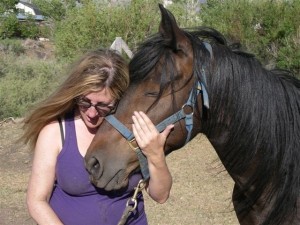
Deanne Stillman with Bugz, the horse that survived the 1998 mustang massacre outside Reno. Picture taken at Wild Horse Spirit in Carson City, Nevada, by Betty Lee Kelly. Bugz died in 2009.
MJC: You’ve written quite explicitly about violence against women. Can you talk about how you process this subject, about your own writing strategies for this kind of difficult material? Is writing trauma also traumatic?
DS: The stories I have written have taken an emotional toll; yes, writing about trauma is traumatic, especially because the stories that call me resonate for me personally in one way or another – otherwise I would not be able to write them. I have had to step away sometimes for months on end after I’ve written chapters or scenes involving violence, whether that means the killing of the two girls in Twentynine Palms, the massacre of wild horses in Nevada, or a shoot-out between a hermit and a sheriff and what followed that incident. Generally, something pulls me back into the story – greater forces that are guiding me along the path of my work. I wrote an essay for the LA Times Magazine about this, regarding something that happened while I was writing Twentynine Palms – my need to get away from the story and the thing that came and got me and made me go back to the desert and finish it up, ironically another violent act.
MJC: Can you share with us some of your favorite pieces of writing that speak to women’s lives or to feminism, and tell us why you like it?
DS: There’s a fantastic novel called Bear by Marian Engel, a little-known Canadian writer with a cult following who died in 1985. Bear is about a librarian who goes to catalogue the books at an old estate in the woods, and finds out that a bear is living on the premises. The book explores their relationship and what it means for the librarian’s ultimate return to civilization. Also, I’ve been a long-time fan of Willa Cather, and in particular her book The Song of the Lark, which explores similar concerns by way of a woman’s accidental sojourn to an ancient cliff house in New Mexico. She too returns to the city at some point, but has been transfigured. Then there’s Mary Austin’s The Land of Little Rain, an important desert chronicle which has influenced my life and work. I would be remiss if I did not include male writers here; I think of Barry Lopez and his nonfiction book Of Wolves and Men; this was a book that propelled me along the Mustang path long before I was actually thinking of it…And there’s Edward Abbey and Desert Solitaire…I think gender and other labels fall away when one connects with the land and place, or perhaps the opposite: we are all sovereign, plants and animals and rocks included, and yet a part of the grand scheme…

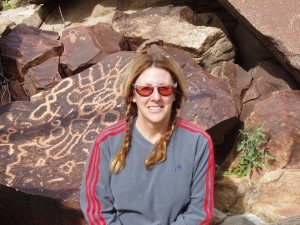
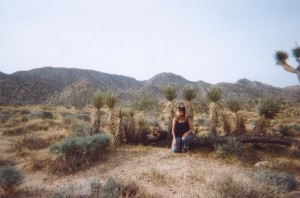
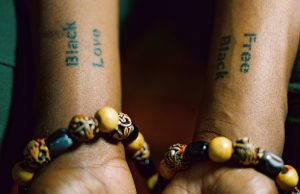

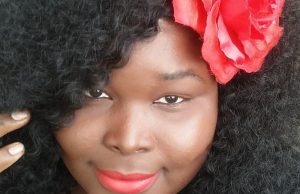
0 comments